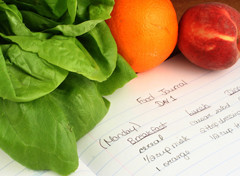Food and migraine: a personal connection
ARCHIVED CONTENT: As a service to our readers, Harvard Health Publishing provides access to our library of archived content. Please note the date each article was posted or last reviewed. No content on this site, regardless of date, should ever be used as a substitute for direct medical advice from your doctor or other qualified clinician.

At a Harvard Medical School talk on migraine and food, a nutritionist from Harvard-affiliated Beth Israel Deaconess Medical Center delivered a message that people in the audience probably didn't want to hear: "There are no specific dietary recommendations for migraine sufferers," said Sandra Allonen. But she did have some advice to offer—and she emphasized that the connection between food and migraine is a very individual one.
Several foods have been associated with triggering migraine. None of them has been scientifically proven to cause migraines, explained Allonen, but many people report a link between eating these foods and getting a migraine. Possible migraine triggers include:
- Aspartame (Equal, NutraSweet)
- Caffeine (Caffeine can help stop a migraine when it starts, but if you don't drink the same amount every day, caffeine withdrawal can trigger a migraine.)
- Chocolate
- Cultured dairy products, such as yogurt
- Broad beans, such as fava beans
- Nuts and nut butters
- Nitrates and nitrites, which are found in processed meats such as bacon and cold cuts
- Sulfites, which are found in wine
- Tyramine, which is found in aged cheeses and meats, and fermented beverages
- Yellow Dye Number 6, which is used in Doritos, Mountain Dew, and Peeps
Preventing migraines
Can you eat to prevent a migraine? Sadly, there aren't any magical foods. But Allonen did say that keeping blood sugar steady throughout the day can be important. To do that, follow these tips. (Happily, they will help you keep your heart healthy as well.)
- Eat small, frequent meals
- Choose whole grains over processed grains (whole wheat bread vs. white bread, for example)
- Eat lean protein at every meal
- Keep hydrated
The most important prevention tactic may be keeping a daily headache diary, in which you write down everything you eat and drink, the activities you do, your stress level, and even the weather, along with how your head feels. It is a tedious activity, but a worthwhile one, especially when you start to see patterns emerge. For example, one person in the audience noted that she found she only got migraines when she ate pizza and chocolate at the same meal.
Allonen attributed the dearth of research into connections between migraine and food to finance: "There's no money in studying diet and migraine," she said. With so little research being done in this area, you have to be your own personal researcher. And in reality, you'll probably learn the most this way, since it seems migraine triggers vary from person to person. After all, you don't want to cut chocolate out of your diet unless you truly have to.
About the Author

Christine Junge, Contributor
Disclaimer:
As a service to our readers, Harvard Health Publishing provides access to our library of archived content. Please note the date of last review or update on all articles.
No content on this site, regardless of date, should ever be used as a substitute for direct medical advice from your doctor or other qualified clinician.












